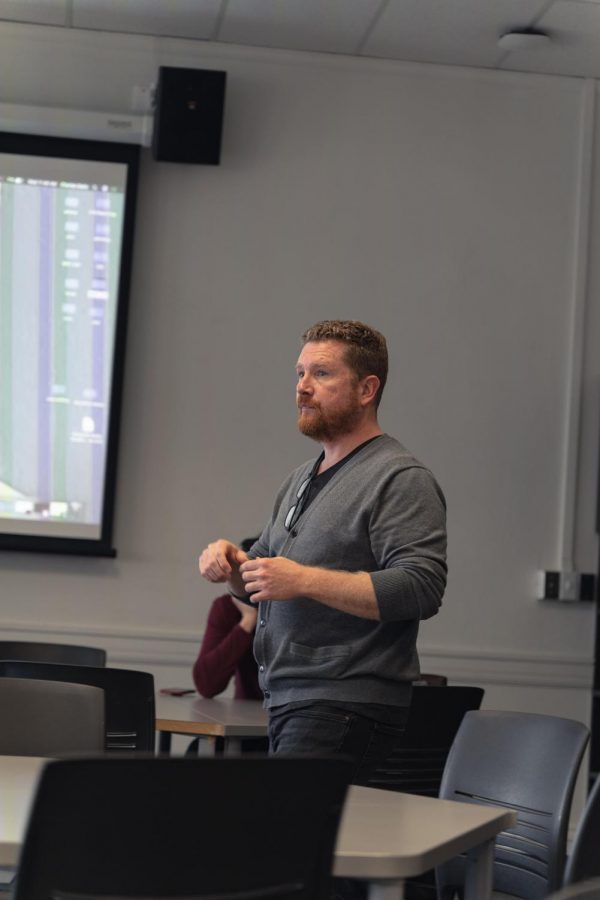OSU in process to implement Quality Teaching Framework
April 8, 2020
Oregon State University’s Faculty Senate Advancement of Teaching Committee is in the process of approving a framework to evaluate teaching in a more effective way. Some students might see these changes in their classes spring term 2020.
According to the Faculty Senate Advancement of Teaching Committee, while teaching is evaluated at OSU in various ways—like student feedback in eSETS, peer review by colleagues, in promotion and tenure reviews of resume materials—there are no OSU-wide adopted standards or ideals of what makes for good teaching.
The Faculty Senate AOT Committee in an email statement said the goal of the Quality Teaching Framework is to establish a broad set of principles that OSU can use to formulate and evaluate statements of policy that influence the teaching process, including teaching effectiveness and efficiency, support, dissemination of information, encouragement of innovation and experimentation, and appropriate recognition of good teaching.
In an email, Devon Quick, Ph.D, former chair of the Faculty Senate AOT Committee and senior instructor in the Department of Integrative Biology said the Quality Teaching Framework articulates the principles of what it means to teach well at OSU.
“If we as a community want to provide excellent learning opportunities, we need to have some level of agreement as to what that means,” Quick said via email. “And, once we agree to the accepted principles of what makes for good teaching, we can then be held accountable for how we enact those principles in the many places and contexts that teaching happens by OSU persons.”
In spring term 2019, the Assessment of Teaching Committee organized a cross-university working group to review the four primary ways in which teaching is evaluated at Oregon State University, which are student feedback, peer evaluation, self reflection and teaching portfolios.
The working group, called the OSU Teaching Evaluation Revision working group, was made up of over 70 members of the OSU community and represented tenure-track faculty, 39% OTER participants, 30% non-tenure-track faculty, 11% students, advisors and administrators from 17 academic units.
The OTER cohort reviewed the current methods of evaluation, and proposed implementable changes in how that evaluation is used at OSU. The OTER groups produced final summary documents of their work, but also the Quality Teaching Framework, a set of guiding principles in teaching excellence to inform instruction and teaching evaluation.
The findings of this working group, including the working version of the QT Framework, were submitted to the Faculty Senate in fall 2019. Stemming from the OTER Final Report, the Faculty Senate Executive Committee tasked the AOT Committee to work on two key initiatives for the 2019-2020 year. One includes initiating a formal process of discussing, revising and adopting the Quality Teaching Framework across OSU by the end of the 2019-2020 academic year.
The final working draft of the QT Framework will be presented to the Faculty Senate for discussion in Spring 2020, with the intention to move to ask the Faculty Senate to adopt the QT Framework university wide to inform instruction and teaching evaluation by June 2020.
In an email, Regan Gurung Ph.D, interim executive director of the Center for Teaching and Learning said, “The challenge is to get consensus on what is quality teaching, and to find effective and efficient ways to measure it. The conversation is a start, there is more work to be done.”
Robin Pappas, Ph.D, chair of the AOT Committee said some teachers volunteered to test the framework in their classes so therefore some teachers might ask their students to submit feedback about the class several times during a class, instead of having to fill only the eSET at the end of the term.
The framework will also serve as a guideline for student employees such as teaching assistants and graduate teaching assistants.
The AOT Committee said in a statement the QT Framework will affect OSU graduate students in the same ways as undergraduate students. In their role as teaching assistants, the QT Framework could provide a foundation for training new GTAs as well as a clearer foundation for documenting and rewarding the kinds of effective teaching and learning practices GTAs employ.











































































































